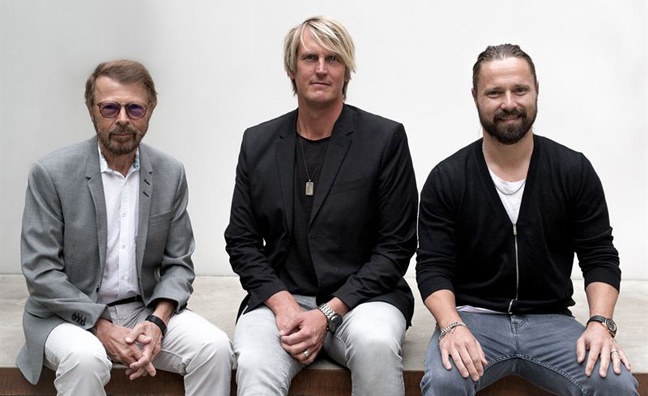Session Studio just announced a significant partnership with SoundCloud on collaboration tools for music creators.
Here, co-founder Niclas Molinder (pictured with co-founders Björn Ulvaeus and Max Martin) says that music creators are now key to fixing the industry’s data management problem…
Last year a DCMS committee called for a “complete reset” of music streaming to fairly reward performers and creators following findings that they are not being fairly compensated for their work. Each year around the world, royalties estimated at around £500 million are being kept out of the hands of the correct rights-holders due to incorrect data - a phenomenon known as the ‘black box‘ problem of the industry.
This issue has become even more salient due to the growth of platforms such as TikTok - which offers new ways for creators to launch music and to build and retain fanbases. In 2021, over 175 songs that trended on TikTok, charted on the US Hot 100, twice as many as the previous year, underscoring the importance of this, and similar, channels in the creator economy. The sheer volume of songs released every year - many with very little metadata and missing link identifiers - creates huge inefficiencies in the music industry, resulting in work not being properly compensated.
The main contributing factor to this is that there is too little verified data coming from the creators in the studio as to who did (or owns) what when it comes to finished songs - despite there being accessible and affordable tools that track exactly this. To solve the problem, we need to start capturing who did what, where, and when at the point of creation, rather than further down the line when the data is unclear or unavailable.
The only way for this to happen is for the industry to come together and work hand-in-hand with artists, producers, mixers and managers to encourage the use of modern technology as being to their advantage, solving this age-old problem in a modern and straightforward way.
In order for all creators to be fairly credited and paid, five pieces of information need to be recorded at the outset. IPI for songwriters and publishers, ISWC for the musical work, ISRC for recordings, IPN for the performer and the ISNI. However as a creator, and speaking from experience, administration is often viewed to be time consuming and frustrating, given the many barriers put in place. Ultimately, we want creators to be able to focus on doing what they love, and not to spend hours entering data or chasing payment.
We want creators to be able to focus on doing what they love, and not to spend hours entering data or chasing payment
Niclas Molinder
Currently, Session Studio’s app is the only service that will authoritatively capture the five individual identifiers, in addition to assigning the musical work identifier (ISWC) to the recording identifier (ISRC). In short, Session Studio collects all of that data seamlessly at the point of creation.
But in the words of Canned Heat, ‘Together we stand, divided we fall’ - in other words, it’s all very well one company doing its bit to help creators but, unless the whole industry gets on board, we will never succeed in removing the black boxes.
There are multiple ways that this can be achieved. One route is campaigning collectively for positive change. An example of this is the Credits Due campaign, which launched last year and which aims to bring the music industry together to ensure complete and accurate song metadata is attached to all recordings the minute a creator enters the studio.
Another route is to partner with like-minded institutions which will integrate the right tools to empower creators. Just last week we partnered with The Ivors Academy, which will be using Session Studio as its recommended app and rolling it out to its entire membership. This means that its members will be able to seamlessly capture and share song and recording data, assigning contributions in the studio via the app’s unique credits system, and even set up royalty splits from the outset.
There is no one quick fix but recognising that creators deserve to be properly and fairly compensated for their work, and coming together collectively as an industry to address this solution, is a big step in the right direction. And while there may be challenges along the way and hurdles to jump, collaboration is the only route to securing sustainable growth and to driving positive transformation.









